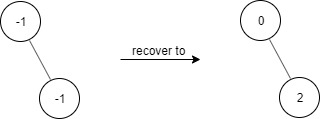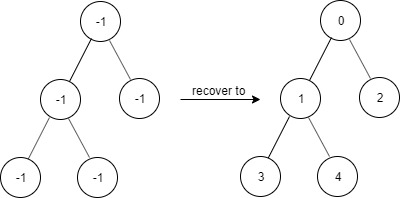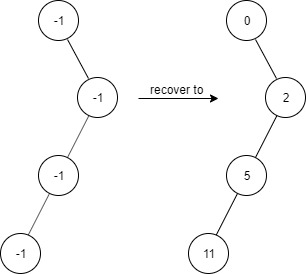C++
Java
Python
Python3
C
C#
JavaScript
Ruby
Swift
Go
Scala
Kotlin
Rust
PHP
TypeScript
Racket
Erlang
Elixir
Dart
monokai
ambiance
chaos
chrome
cloud9_day
cloud9_night
cloud9_night_low_color
clouds
clouds_midnight
cobalt
crimson_editor
dawn
dracula
dreamweaver
eclipse
github
github_dark
gob
gruvbox
gruvbox_dark_hard
gruvbox_light_hard
idle_fingers
iplastic
katzenmilch
kr_theme
kuroir
merbivore
merbivore_soft
mono_industrial
nord_dark
one_dark
pastel_on_dark
solarized_dark
solarized_light
sqlserver
terminal
textmate
tomorrow
tomorrow_night
tomorrow_night_blue
tomorrow_night_bright
tomorrow_night_eighties
twilight
vibrant_ink
xcode
上次编辑到这里,代码来自缓存 点击恢复默认模板
/**
* Definition for a binary tree node.
* struct TreeNode {
* int val;
* TreeNode *left;
* TreeNode *right;
* TreeNode() : val(0), left(nullptr), right(nullptr) {}
* TreeNode(int x) : val(x), left(nullptr), right(nullptr) {}
* TreeNode(int x, TreeNode *left, TreeNode *right) : val(x), left(left), right(right) {}
* };
*/
class FindElements {
public:
FindElements(TreeNode* root) {
}
bool find(int target) {
}
};
/**
* Your FindElements object will be instantiated and called as such:
* FindElements* obj = new FindElements(root);
* bool param_1 = obj->find(target);
*/
运行代码
提交
php 解法, 执行用时: 102 ms, 内存消耗: 24.5 MB, 提交时间: 2024-03-12 14:19:27
/**
* Definition for a binary tree node.
* class TreeNode {
* public $val = null;
* public $left = null;
* public $right = null;
* function __construct($val = 0, $left = null, $right = null) {
* $this->val = $val;
* $this->left = $left;
* $this->right = $right;
* }
* }
*/
class FindElements {
/**
* @param TreeNode $root
*/
function __construct($root) {
$this->ans = [];
$this->root = $root;
if ( $root ) {
$this->root->val = 0;
$this->ans[] = 0;
$this->dfs($this->root);
}
}
function dfs($node) {
if ( $node == null )
return;
if ( $node->left ) {
$node->left->val = 2 * $node->val + 1;
$this->ans[] = $node->left->val;
$this->dfs($node->left);
}
if ( $node->right ) {
$node->right->val = 2 * $node->val + 2;
$this->ans[] = $node->right->val;
$this->dfs($node->right);
}
}
/**
* @param Integer $target
* @return Boolean
*/
function find($target) {
return in_array($target, $this->ans);
}
}
/**
* Your FindElements object will be instantiated and called as such:
* $obj = FindElements($root);
* $ret_1 = $obj->find($target);
*/
golang 解法, 执行用时: 24 ms, 内存消耗: 7.4 MB, 提交时间: 2022-11-17 11:17:20
/**
* Definition for a binary tree node.
* type TreeNode struct {
* Val int
* Left *TreeNode
* Right *TreeNode
* }
*/
type FindElements struct {
aset map[int]struct{}
}
func Constructor(root *TreeNode) FindElements {
aset := make(map[int]struct{})
var dfs func(node *TreeNode, val int)
dfs = func(node *TreeNode, val int) {
if node != nil {
node.Val = val
aset[val] = struct{}{}
dfs(node.Left, val*2+1)
dfs(node.Right, val*2+2)
}
}
dfs(root, 0)
return FindElements{
aset: aset,
}
}
func (this *FindElements) Find(target int) bool {
_, ok := this.aset[target]
return ok
}
/**
* Your FindElements object will be instantiated and called as such:
* obj := Constructor(root);
* param_1 := obj.Find(target);
*/
python3 解法, 执行用时: 676 ms, 内存消耗: 18.9 MB, 提交时间: 2022-11-17 11:15:01
# Definition for a binary tree node.
# class TreeNode:
# def __init__(self, val=0, left=None, right=None):
# self.val = val
# self.left = left
# self.right = right
class FindElements:
def __init__(self, root: Optional[TreeNode]):
self.ans = []
self.root = root
if root:
self.root.val = 0
self.ans.append(0)
self.dfs(self.root)
def dfs(self, node: TreeNode):
if not node:
return
if node.left:
node.left.val = 2 * node.val + 1
self.ans.append(node.left.val)
self.dfs(node.left)
if node.right:
node.right.val = 2 * node.val + 2
self.ans.append(node.right.val)
self.dfs(node.right)
def find(self, target: int) -> bool:
return target in self.ans
# Your FindElements object will be instantiated and called as such:
# obj = FindElements(root)
# param_1 = obj.find(target)
python3 解法, 执行用时: 792 ms, 内存消耗: 18.9 MB, 提交时间: 2022-11-17 11:03:09
# Definition for a binary tree node.
# class TreeNode:
# def __init__(self, val=0, left=None, right=None):
# self.val = val
# self.left = left
# self.right = right
class FindElements:
def __init__(self, root: Optional[TreeNode]):
def fill(root, key):
if not root:
return
else:
root.val = key
fill(root.left, 2*key + 1)
fill(root.right, 2*key + 2)
fill(root, 0)
self.ans = []
def inorder(root):
if not root:
return
else:
inorder(root.left)
self.ans.append(root.val)
inorder(root.right)
inorder(root)
def find(self, target: int) -> bool:
return target in self.ans
# Your FindElements object will be instantiated and called as such:
# obj = FindElements(root)
# param_1 = obj.find(target)


